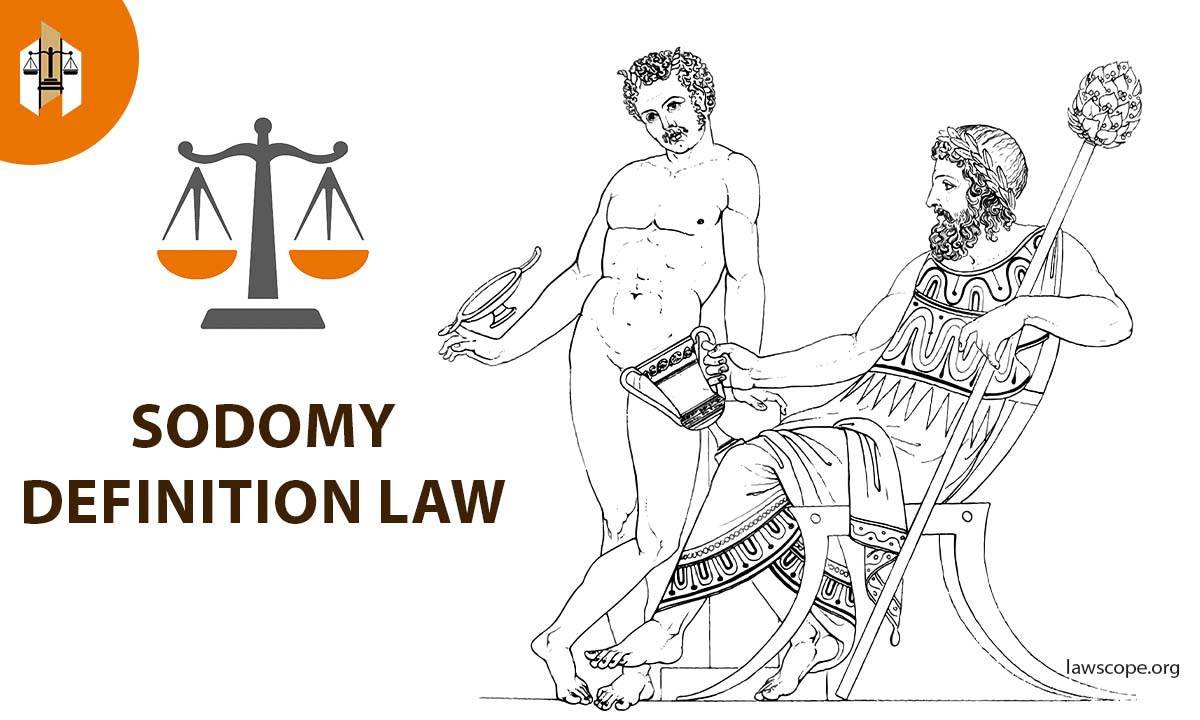In the vast landscape of legal terminology, few terms are as misunderstood and controversial as “sodomy”. This article aims to shed light on the Sodomy Definition Law, providing a clear understanding of its meaning, implications, and the controversies surrounding it.
The term “sodomy” has been used in legal contexts for centuries, often associated with non-procreative sexual acts.
However, the interpretation and application of sodomy laws have varied greatly across different jurisdictions and cultures, leading to a complex and often contentious legal landscape.
This article will delve into the intricacies of the sodomy definition law, exploring its historical context, its current status in various jurisdictions, and the ongoing debates about its relevance and fairness in today’s society.
Join us as we navigate the complex terrain of sodomy laws, aiming to foster a better understanding and stimulate informed discussion on this critical issue.
What is Sodomy?
The term “sodomy” is often used in legal contexts to refer to specific sexual acts that fall outside of traditional heterosexual intercourse.
However, the sodomy definition law varies significantly across different jurisdictions and cultures, leading to a wide range of interpretations and applications.
In many legal systems, sodomy has historically been defined to include any non-procreative sexual act, often including oral and anal sex, regardless of the gender of the participants.
However, it’s important to note that these definitions are often rooted in cultural and religious beliefs about sexuality, and do not necessarily reflect modern understandings of sexual behaviour or human rights.
In the next section, we will shed light on how these laws have evolved over time and the impact they have had on societies around the world.
Historical Context of Sodomy Laws
To fully grasp the sodomy definition law, it’s crucial to understand its historical context.
Sodomy laws have been a part of legal systems for centuries, often reflecting the prevailing cultural and religious norms of the time.
In many societies, sodomy was historically viewed as a deviant or unnatural act, often associated with religious taboos.
As a result, laws were enacted to penalise such behaviour, often with severe punishments.
These laws were not just limited to what we now understand as sodomy, but often included a wide range of non-procreative sexual acts.
However, the interpretation and enforcement of these laws varied greatly.
In some jurisdictions, sodomy laws were rarely enforced, while in others, they were used as a tool to persecute certain marginalised groups, particularly the LGBTQ+ community.
In the next section, we will examine the current status of sodomy laws around the world..
Sodomy Laws Around the World
As we delve deeper into the sodomy definition law, it’s important to note that the legal landscape varies greatly around the world.
In some countries, sodomy laws have been abolished and acts that were once considered sodomy are now recognized as part of the spectrum of human sexuality.
However, in other parts of the world, sodomy laws remain in effect and are often used to criminalise sexual behaviour between consenting adults.
These laws can have a profound impact on the lives of individuals, particularly those who identify as part of the LGBTQ+ community.
In the next section, we will explore the impact of these laws, both on individuals and on society as a whole.
Impact of Sodomy Laws
The sodomy definition law and its enforcement have far-reaching implications, affecting individuals and societies in profound ways.
These laws often target the LGBTQ+ community, leading to discrimination, stigma, and in some cases, criminal prosecution.
For individuals, being targeted by sodomy laws can lead to a host of negative outcomes, including social ostracization, mental health issues, and legal repercussions.
These laws can also perpetuate harmful stereotypes and foster a climate of fear and intolerance.
On a societal level, sodomy laws can hinder progress towards equality and human rights. They can reinforce discriminatory attitudes and practices, creating divisions and perpetuating inequality.
In the next section, we will discuss the ongoing efforts to reform sodomy laws and the challenges that advocates face in this endeavour.
The Road to Reform
As we continue to explore the sodomy definition law, it’s important to highlight the ongoing efforts to reform these laws.
Across the globe, advocates are working tirelessly to challenge and change sodomy laws, arguing that they infringe on human rights and perpetuate discrimination against the LGBTQ+ community.
These reform efforts take many forms, from legal challenges in the courts to advocacy work raising awareness about the harmful effects of these laws.
Despite the obstacles, there have been notable successes, with several countries choosing to repeal their sodomy laws in recent years.
However, the road to reform is not an easy one.
Advocates face numerous challenges, including deeply ingrained societal attitudes and powerful opposition groups.
Despite these challenges, the fight for reform continues, fueled by the belief in equal rights for all, regardless of sexual orientation.
FAQ (Frequently Asked Questions)
I believe after going through this article you get a deep understanding of the topic.
Now here are some commonly asked questions that you might also have in your head.
So, let’s explore them.
Q1. What is Sodomy in Law?
In legal terminology, “sodomy” often refers to non-procreative sexual acts.
However, the sodomy law definition varies widely across different jurisdictions and cultures, reflecting diverse societal norms and attitudes towards sexuality.
Q2. Is Sodomy Against The Law?
The legality of sodomy depends on the jurisdiction. In some countries, sodomy is criminalised under sodomy law, while in others, these laws have been abolished, recognizing the rights of consenting adults to engage in private sexual behaviour.
Q3. What Are Sodomy Laws?
Sodomy laws are laws that criminalize certain types of sexual acts, traditionally non-procreative ones. These laws have been used historically to penalise a range of behaviours, often targeting the LGBTQ+ community.
Q3. How Are Sodomy Laws Enforced?
Enforcement of sodomy law varies greatly. In some jurisdictions, these laws are actively enforced, leading to prosecutions. In others, while the laws technically remain on the books, they are rarely, if ever, enforced.
Q4. How Many States Have Sodomy Laws?
As of my knowledge cutoff in 2021, in the U.S., sodomy laws have been invalidated nationwide since 2003 following the Supreme Court decision in Lawrence v. Texas, which ruled such laws unconstitutional. Prior to this, many states had already repealed their sodomy laws.
Related Content: Is Watching Beastly Illegal In US? Bestiality Law
Conclusion
As we conclude our exploration of the sodomy definition law, it’s clear that this is a complex and sensitive issue with far-reaching implications.
From its historical origins to its current status in various jurisdictions, sodomy laws have shaped and continue to shape societal attitudes towards sexuality.
While progress has been made in some regions towards the decriminalisation of sodomy, much work remains to be done.
The continued existence of sodomy laws in many parts of the world underscores the ongoing challenges faced by the LGBTQ+ community and highlights the need for continued advocacy and education.
Understanding the sodomy definition law is not just about understanding a legal term.
It’s about recognizing the impact of these laws on real people’s lives and joining the global conversation about equality, human rights, and the freedom to love.
We hope this exploration has provided valuable insights and sparked thoughtful discussion.
You May Like Also:





Leave a Reply